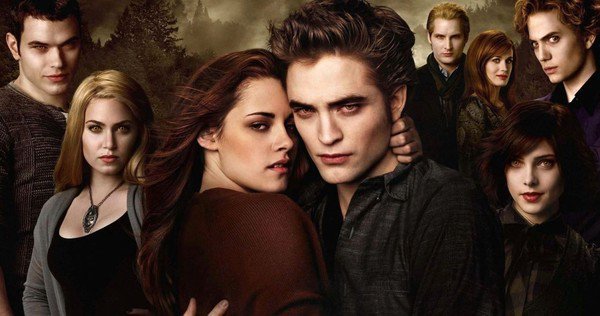
The Heart’s Crucible: War, Desire, and the Eclipse of Choice
The world of Forks, Washington, is perpetually shrouded in mist, a fitting backdrop for the twilight struggle of souls and species. But in Eclipse, the third installment of Stephenie Meyer’s saga, that characteristic gloom deepens, thickened by the scent of blood and the looming shadow of war. Here, Bella Swan, the seemingly ordinary girl caught between the supernatural, finds herself at the very epicenter of a conflict that is both terrifyingly external and agonizingly internal. Edward Cullen, the ancient vampire whose love promises eternity, and Jacob Black, the volatile werewolf whose touch brings human warmth, are not merely caught in a war between vampires and werewolves; they are, along with Bella, combatants in a larger crucible of loyalty, desire, and the brutal choices forged in the heart of a storm.
The external war, a cunningly orchestrated rampage by Victoria and her newborn vampire army, serves as the catalyst, forcing a truce in the age-old animosity between the Cullens and the Quileute pack. The air crackles with unspoken history and suppressed instinct as the two ancient rivals reluctantly join forces. This fragile alliance is itself a powerful illustration of the novel’s core theme: necessity breeds a temporary unity, but the underlying tensions simmer, ready to erupt. The vampires, pale and poised, move with lethal grace; the werewolves, massive and primal, radiate an untamed power. Their training sessions, a ballet of choreographed violence, highlight not just their contrasting fighting styles but their very natures – one refined by millennia, the other raw and untamed. This isn’t a true war between them, but rather a cold, uneasy collaboration against a common, existential threat, a temporary suspension of their own enduring conflict.
Yet, it is the internal war, fought on the battlefield of Bella’s heart, that truly defines Eclipse. Her choice is not merely between two boys, but between two destinies, two versions of herself. Edward represents the ethereal, the forbidden, the promise of an un-aging, glamorous eternity devoid of human suffering, but also of human warmth. His love is possessive, intense, intellectual, a love that demands her future. Jacob, conversely, embodies the visceral, the immediate, the anchor to her humanity, the sun to Edward’s moon. His love is a burning, almost painful, reality, a desperate plea for her present. Bella’s agonizing indecision, her constant back-and-forth, is a war waged with every beat of her heart, every conflicted thought. She is a fractured mirror, reflecting the desperate hopes and fears of both her suitors, unable to fully sever herself from either without immense pain.
Edward and Jacob, though ostensibly allies against Victoria, are themselves locked in a fierce, emotional battle for Bella’s soul. Edward, ever the stoic protector, struggles with the volcanic jealousy ignited by Jacob’s presence. He endures Jacob’s scent, his snark, his undeniable claim to Bella’s human comfort. In the now iconic tent scene, where they are forced together by the freezing weather, the tension is almost unbearable. Edward’s cold, marble skin presses against Bella’s, while Jacob’s burning body is mere inches away. This confined space becomes a microcosm of the larger conflict, a battleground of wills and desires, where Edward’s ancient wisdom clashes with Jacob’s raw, untamed passion. He sees Jacob as a threat to Bella’s future, a temptation to a life he believes is beneath her.
Jacob, on the other hand, fights with the desperation of a creature losing its mate. His love for Bella is a physical ache, an instinctive need that chafes against her intellectual commitment to Edward. He believes, with every fiber of his being, that he is her natural, her rightful, choice. He resorts to emotional blackmail, to audacious kisses, to exploiting her guilt and compassion. His declaration, “I am going to fight for you until your heart stops beating,” is not just a promise but a declaration of war, not against the newborns, but against Edward and the destiny he offers. He represents the wild, the immediate, the life she could have now, a life with sunlight and breath and the potential for a normal human future.
The climax, the brutal battle against Victoria’s newborns, offers a temporary, violent catharsis. In the snowy clearing, where limbs are torn and bodies shatter like ice, the vampires and werewolves fight as one, a seamless, if strained, machine of destruction. It is a moment of shared terror and shared purpose, where the threat is so absolute that all other conflicts are momentarily suspended. Yet, even in victory, the underlying wars resume. Bella’s definitive choice, made in the aftermath of the carnage, shatters Jacob’s heart, driving him away in a howl of anguish. Edward’s victory is tinged with the knowledge of Bella’s lingering affection for Jacob, a shadow that forever haunts their “happily ever after.”
Eclipse is not just a tale of supernatural war; it is a profound illustration of the human (and superhuman) condition caught in the crosshairs of destiny and desire. The external conflict merely serves to intensify the internal maelstrom, forcing Bella, Edward, and Jacob to confront their deepest fears, their most fervent longings, and the painful consequences of their choices. They are caught in a war that rages not just on the battlefield, but within the very essence of who they are, a heart-wrenching testament to the enduring power and destructive potential of love, loyalty, and the agonizing eclipse of choice.
